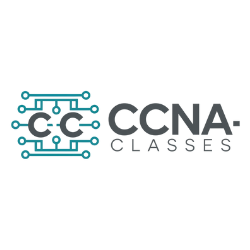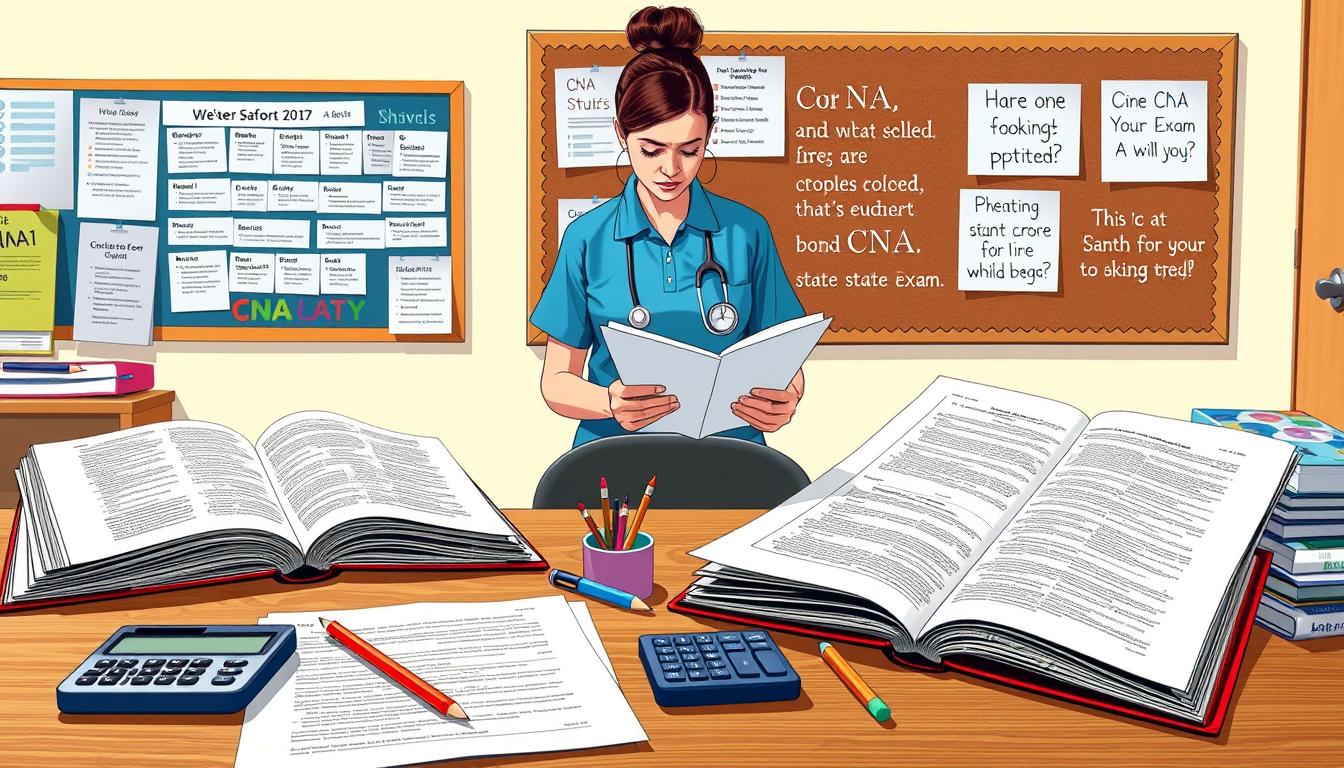Passing your certification test to become a certified nursing assistant can feel overwhelming, but it doesn’t have to be. Imagine sitting down with a friend who’s been through it all—someone who understands the late-night study sessions and the pressure to master both book knowledge and hands-on skills. That’s exactly what we’re here for.
The test has two parts: a written section with multiple-choice questions and a clinical skills evaluation. You’ll need to show you understand topics like patient care basics and workplace responsibilities. Many find the timed format stressful, but authentic practice tests help build confidence and speed.
This guide shares battle-tested tips, like how to mimic real exam conditions at home and where to find reliable study tools. We’ve combed through resources from trusted names like Mometrix to save you time. By the end, you’ll have a clear roadmap to walk into test day ready to succeed.
Key Takeaways
- The certification test includes written questions and hands-on skill demonstrations.
- Independent study with timed practice tests improves time management and accuracy.
- Focus on core areas like physical care (64% of the written test) and workplace ethics.
- State-approved training programs may let you skip the skills test if completed.
- Budget around $100 for exam fees, but check your state’s exact requirements.
Navigating the CNA Exam Landscape
Let’s unpack what you’ll face during your evaluation. The assessment has two parts: a written portion with 60-75 multiple-choice questions and a hands-on demonstration requiring you to perform 3-4 care tasks in under 30 minutes. Picture this: fluorescent lights overhead, a ticking clock, and the weight of showing you can prioritize patient dignity while nailing technical steps like proper handwashing.
Breaking Down the Test Components
Safety protocols and infection control weave through both sections. You might get scenarios like:
- Identifying proper PPE use in written questions
- Demonstrating bedpan sanitization during clinicals
Time limits vary slightly between providers. For example, HeadMaster allows 90 minutes for written questions, while Prometric typically caps it at 75.
Your State’s Testing Partners
Three major companies administer evaluations nationwide:
| Provider | Key Features | Common States |
|---|---|---|
| Pearson Vue | 75 questions, 5 pilot items | TX, FL |
| Prometric | 60 scored questions | CA, NY |
| HeadMaster | Skills check via video | Midwest states |
Check your local requirements early—some regions let you retake failed sections separately. This knowledge helps you target practice tests effectively, reducing last-minute surprises.
Mastering CNA State Exam Prep Strategies
Think of your preparation like building a house—strong foundations in basic nursing skills support every decision you’ll make during evaluations. Start by blending textbook knowledge with muscle-memory drills for tasks like proper handwashing or transferring patients. Platforms like Mometrix offer simulated tests that mirror actual question formats, helping you spot patterns in topics like infection control.
Effective Study Techniques for Written and Clinical Tests
Rotate between flashcard sessions and timed practice quizzes to keep your brain engaged. One learner shared how CNA.plus’s premium package helped them improve from 68% to 92% accuracy by reviewing answer explanations. Try these approaches:
- Record yourself explaining why each step in a bed bath matters
- Use household items to rehearse procedures like measuring pulse
- Schedule mock exams at the same time as your real test
Balancing Practice, Research, and Real Test Scenarios
Don’t just memorize steps—understand how patient dignity ties into every skill. Free resources often lack detailed rationales, so pair them with paid tools that break down mistakes. A 2023 survey found candidates who combined clinical skills test rehearsals with concept maps scored 18% higher than peers relying on rote learning.
Set weekly goals: “Master three nursing skills” beats vague plans like “study more.” Treat each practice session as a dress rehearsal—wear scrubs, time tasks, and visualize success. This builds the mental stamina you’ll need when evaluators watch your every move.
Building Confidence with Practice Tests and Simulators
Picture this: fluorescent lights, a ticking clock, and a screen displaying questions you’ve practiced a dozen times. This familiarity isn’t luck—it’s the power of simulated exam experiences. Tools like the CNA Exam Simulator recreate every detail, from question counts to time limits, helping your brain recognize patterns under pressure.

Simulated Exam Experiences That Mirror the Real Test
Top platforms use actual healthcare protocols to design their practice tests. For example, one simulator presents 75 questions in 90 minutes—just like live evaluations. You’ll face scenarios like prioritizing tasks during an emergency or choosing PPE for isolation rooms. This mirroring effect trains your mind to stay calm when it matters most.
Interpreting Detailed Rationales and Performance Data
After each session, review explanations for every answer. One user improved their score by 24% by analyzing why “handwashing before glove removal” matters more than speed. Look for tools that break down your results like this:
| Content Area | Your Score | Target Goal |
|---|---|---|
| Infection Control | 82% | 90% |
| Emergency Response | 75% | 85% |
| Patient Transfers | 93% | 95% |
This data shows exactly where to focus next. Notice patterns—maybe you rush through vital signs steps when timed.
Strategies to Boost Time Management and Focus
Set a kitchen timer for 25-minute study bursts. During these windows, tackle practice tests without distractions. If you stumble on a skill like bed-making, film yourself doing it slowly, then speed up each replay. Over 87% of learners in a 2024 survey said timed drills helped them finish clinical tasks with 2-4 minutes to spare.
Remember: every simulated test is a chance to build muscle memory. Wear your scrubs during practice. Sit at a desk—not your couch. These rituals trick your brain into feeling “This is normal,” melting anxiety when the real day arrives.
Expert CNA Exam Resource Recommendations
What if you had a secret weapon that made studying feel effortless? After helping hundreds of learners succeed, I’ve found the perfect blend of tools that turn stress into progress. Let’s explore resources that adapt to your learning style while preparing you for real-world scenarios.

Smart Mix: Free & Premium Practice Tools
Start with free CNA practice tests from CNA.plus to gauge your baseline knowledge. Their 200-question bank covers infection control and client mobility—topics that stump many candidates. When you’re ready to level up, Mometrix’s premium package delivers 600+ questions with video breakdowns showing exactly how evaluators score skills like bed baths.
Why pay for some materials? Premium platforms often include:
- State-specific exam blueprints matching your region’s requirements
- Interactive skill demos you can replay at tricky moments
- Detailed rationales explaining why answers are right or wrong
Digital Tools That Stick Like Gloves
Flashcards work better when they’re smart. Apps like CNA.plus track which terms you miss—like “chain of infection” steps—and surface them more often. One user doubled their retention rate by pairing these with 5-minute daily quizzes during lunch breaks.
For hands-on learners, video libraries show nursing assistants performing tasks at exam speed. Watch how they position clients during transfers or adjust oxygen masks. Then, record yourself mimicking these moves using household items as props.
Remember: The best resources grow with you. Platforms updating content monthly (like Mometrix) ensure you’re studying current health care protocols—not outdated methods. Combine these tools, and you’ll walk into your evaluation ready to shine.
Efficient Registration and Exam Day Preparation
Let’s map out your path from registration to test day with precision. A well-organized approach reduces stress and keeps your focus where it belongs—on showcasing your skills. Start by creating a Credentia CNA365 account early to secure your preferred evaluation slot.
Smooth Registration and Scheduling Tips
Book your spot at least 6 weeks ahead using these steps:
- Upload state-required documents (training completion proof, background check)
- Select a testing center with parking/transit access
- Confirm via email and mark your calendar
Missing your slot without notice costs $50+ in rescheduling fees. Double-check these essentials:
| Required Items | Details |
|---|---|
| Primary ID | Driver’s license or passport |
| Secondary ID | Social Security card or bank statement |
| Attire | Scrubs + closed-toe shoes |
Essential Test Day Logistics and Safety Checks
Pack your bag the night before with:
- Two valid IDs
- Analog watch with second hand
- Water bottle and protein snack
Arrive 45 minutes early to complete safety protocols. During the clinical skills test, clearly state each step aloud—this shows evaluators you prioritize patient rights and needs. If unsure about a procedure, pause and ask for clarification.
Know your rights: You can request breaks during written sections if time allows. For safety emergency scenarios, always verbalize actions like “I’d call the nurse immediately” while demonstrating proper technique. Systematic preparation turns evaluation day into a victory lap.
Final Insights and Action Steps
You’ve got this—and here’s how to prove it. Blend practice tests with hands-on drills to build muscle memory for tasks like proper handwashing. Remember Sarah, who aced her evaluation by rehearsing with kitchen towels as makeshift bed linens? Her secret: treating every practice session like the real deal.
Start today with these steps:
• Take a free trial of exam simulators matching your state’s format
• Film yourself performing basic nursing skills for self-review
• Review answer rationales—knowing why matters as much as the correct choice
Over 585,000 learners found success using timed quizzes and video demonstrations. Wear scrubs during mock tests to boost confidence. Arrive early on evaluation day—bring two IDs and a watch to track clinical tasks.
Your journey matters. One candidate improved scores by 24% after analyzing mistakes in infection control steps. Join communities where certified nursing assistants share pep talks and study hacks. Ready to begin? Click “start trial” now—your future self will thank you.
FAQ
How do state-specific requirements impact exam preparation?
What’s the best way to practice for clinical skills evaluations?
Can free practice tests adequately prepare you for the real exam?
How do you manage time during the written portion?
What’s often overlooked during test day preparation?
How can you strengthen communication skills for the exam?
Are there shortcuts for memorizing medical terms?
Source Links
- CNA Practice Test (Updated 2025)
- 7 Key Tips for Cna Exam Preparation to Achieve Success!
- Ultimate CNA Study Guide: Ace Your Exam in 2024
- CNA Exam Secrets Study Guide: CNA Test Review for the Certified Nurse Assistant 9781609714291 | eBay
- CNA Classes Online » Certification Training Programs (April 2025)
- CNA Exam Test Prep
- Free CNA Practice Test [New 2025 Questions] CNA Plus Academy
- Free CNA Practice Test [Updated for April 2025]
- Best CNA Practice Test: Free Questions for Effective Exam Preparation
- CNA Exam Practice Questions: How To Prepare For Your CNA Certification Test
- CNA Test Prep & Practice 2025
- Credentia
- CNA Test Page
- How to Succeed on the CNA Skills Test: 10 Simple Steps
- 1815124 Practice Questions Cna State Exam





